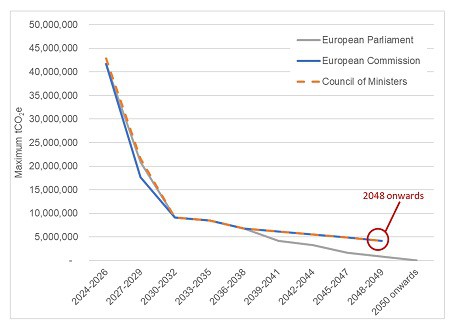Proposed Changes to EU F-Gas Regulation: Impacts and Implications for Stationary Refrigeration Equipment
23rd June 2023
With the recent decision by the EU Council of Ministers to relax some of the original bans proposed by the European Parliament, many are wondering what the potential next steps will be. Will the European Parliament push for a stricter phase down, or will the Council of Ministers continue to resist? And what about the UK, now that it has officially left the EU – will they follow the EU regulations or diverge? Regardless of the phase down scenario, it is important to plan ahead and ensure that refrigeration equipment can remain operational or be replaced as part of a planned process.
A recent proposal to revise the EU F-gas regulation has been met with heated debate by the EU Council of Ministers and the European Parliament. While the Parliament proposed a more ambitious, stringent phase-down scenario, the Council of Ministers agreed to relax some of the initially proposed bans. The revision pertains mainly to heat pumps and air conditioning systems, with the proposal making a distinction between HFCs and “fluorinated greenhouse gases” such as HFOs in terms of banning, leak checks, record keeping, recovery, and labelling.

One significant change resulting from the proposal and ensuing debates relates to the stationary, self-contained refrigeration systems. Self-contained systems are defined as a complete factory-made refrigerating system in a suitable frame and/or enclosure, that is fabricated and transported complete in which no refrigerant-containing parts are connected on site. The newest clause pertaining to these systems will ban stationary, self-contained refrigeration equipment with F-gases that have a global warming potential (GWP) of 150 or more, effective January 1, 2025 (except when required to meet safety requirements). This new clause also appears to remove the derogation allowed for applications designed to cool products to temperatures below -50°C if they fall under the stationary, self-contained definition. Systems previously under this 150 GWP limit included only domestic and some commercial equipment. However, the new clause will now include laboratory equipment, small water chillers, drinks coolers and ice makers. Although some of these systems may already use R290, many manufacturers will need to make significant updates. This change affects many industries, and it is important for manufacturers to understand the application of the new regulation and revise their systems accordingly. Previously the only equipment included under the 150 GWP limit was domestic and some commercial equipment.
Clearly, the implementation of this proposal and subsequent revisions to the EU F-gas regulation is a complicated process. The European Parliament, Council, and Commission must reach an agreement on the final amendments, and further negotiations will take place. It is important for the industry to follow these negotiations closely, as they will have a significant impact on the regulation and, ultimately, on the manufacturers of refrigeration and HVAC equipment across Europe.
Bente Tranholm-Schwartz (Case officer- European Commission) states once an agreement has been reached, there will be a period of time required to revise and refine the text before it can be translated. “So we hope that we will manage to do that before the end of the year so that the new regulation can start to apply from 1 January 2024,” she said
With the third meeting trilogue meeting set to be held on the 19th July 2023. The purpose of which is to reach a provisional agreement that is acceptable to both the EU Parliament and the Council, the co-legislators. With the Parliament shut down in August its unlikely that any provisional agreement could be put before Parliament before September, which bring this dangerously close to the deadline of coming into force from the 1st January 2024.
One thing is certain: regardless of the outcome, these changes will have a significant impact on the refrigeration industry and its supply chain. Higher GWP refrigerants will become scarcer and more expensive, and it will be essential to plan ahead to ensure that refrigeration equipment can remain operational or be replaced as part of a planned process.
So, what are your thoughts on the potential next steps of the F-gas phase down, and the impact it may have on the UK industry? Let’s start a conversation and exchange ideas on how we can adapt and prepare for the future.


